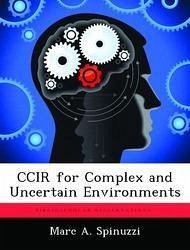The purpose of this monograph is to examine the concept of Commander's Critical Information Requirements (CCIR) and determine if the doctrine is suitable for particularly complex operations like counter-insurgency operations (COIN). Commanders involved in COIN have developed new tactics, techniques, and procedures (TTPs) for creating and using CCIR. These TTPs often directly contradict existing doctrine and result in information requirements which fail to meet the criteria established for conventional warfare. These TTPs result from a doctrine that is ambiguous, confusing, and overly complex. CCIR developed in doctrine to accomplish three distinct purposes - to maintain situational understanding, to support decision points, and to manage information. A fourth purpose - to support assessment - is a relatively new addition. These purposes were all developed with conventional warfare in mind. In fact, lessons learned from unconventional wars against insurgents or guerrillas were rarely applied to the concept of CCIR, and were systematically removed from doctrine when they did appear. Army doctrine distinguishes problems by the level of complexity inherent in the situation. COIN represents an ill-structured, or complex, problem. C2 in complex environments must stress flexibility and adaptability, and will result in more adjustment decisions than execution decisions. Successful decisionmaking in complex environments relies not only on a foundation of experience, but also on certain useful characteristics or habits. There are a number of practices common to expert decisionmakers: experts have a knack for setting and defining goals; experts anticipate that they will have to adapt their plans; experts tend to have a higher tolerance for uncertainty, and they have developed several specific tactics for dealing with it. Three of the four purposes of CCIR - maintain situational understanding, support decision points, and support assessment - are related to tactics employed by
Hinweis: Dieser Artikel kann nur an eine deutsche Lieferadresse ausgeliefert werden.
Hinweis: Dieser Artikel kann nur an eine deutsche Lieferadresse ausgeliefert werden.








